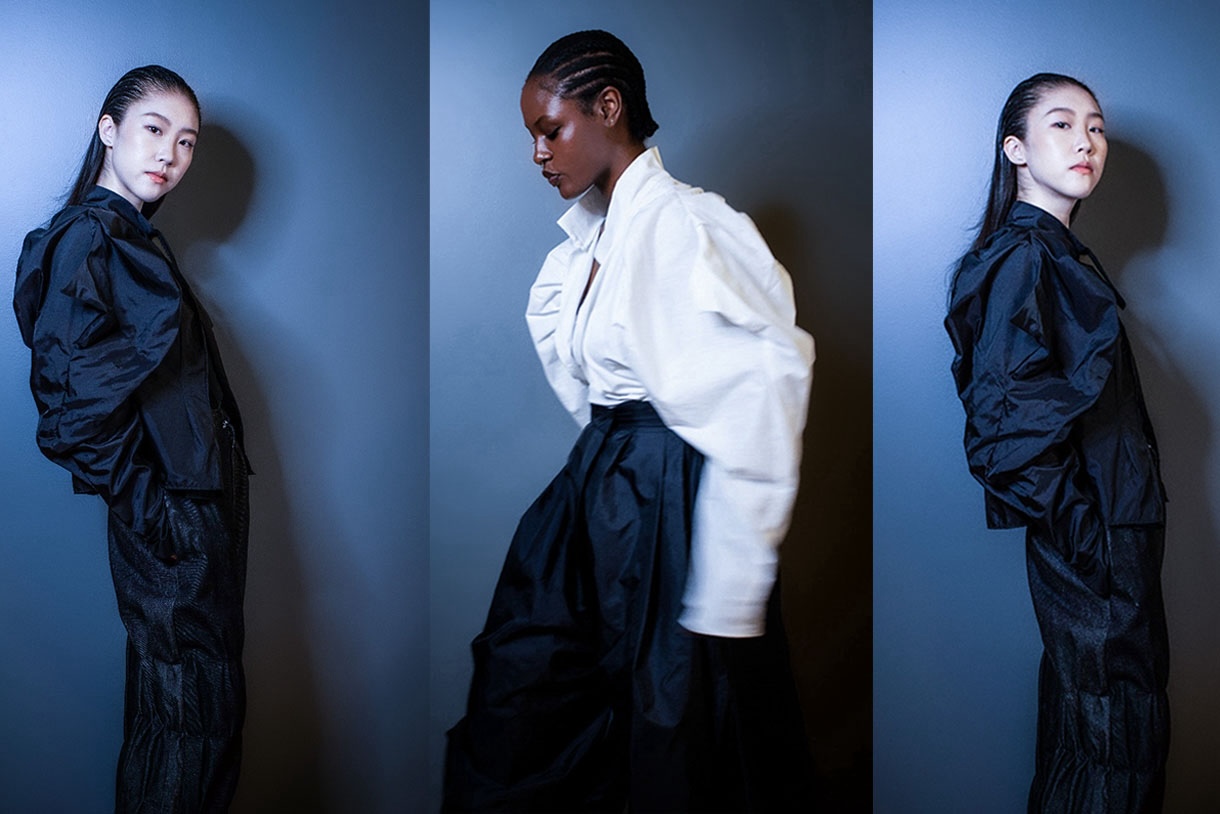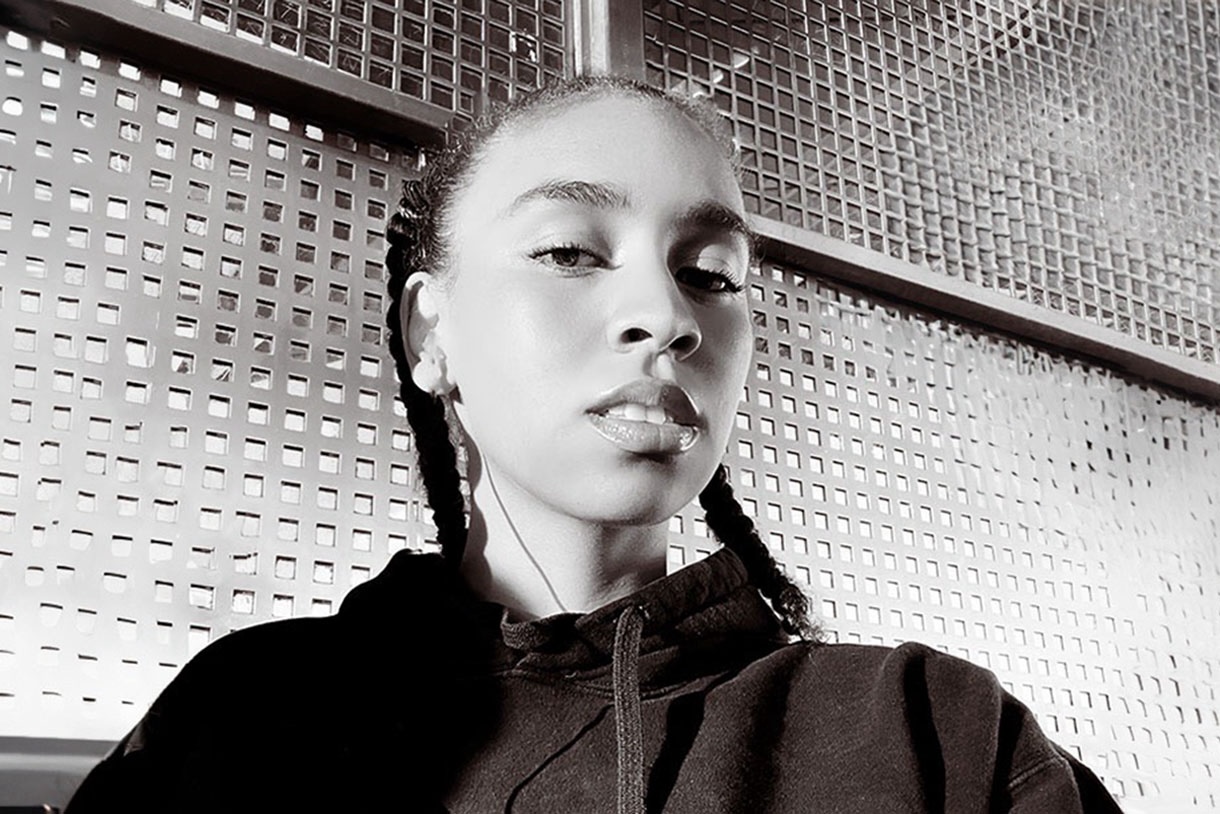Fashion Design Student Joelle Olabode Wins CFDA Scholarship
Joelle Olabode, a senior majoring in Fashion Design in Columbia’s School of Fashion, has been awarded a $25,000 scholarship from the Council of Fashion Designers of America (CFDA).
CFDA is a not-for-profit trade association comprising over 450 American fashion and accessory designers, dedicated to promoting American designers in the global economy. The CFDA scholarship is a highly competitive award that recognizes outstanding design talent from leading fashion schools across the country.
Olabode explained that during her sophomore year, she had an internship where she frequently spoke with a mentor who played a pivotal role in making the experience truly educational. “This remarkable woman generously shared insights into the fashion industry and highlighted various opportunities I could pursue as a student, including the CFDA scholarship. I kept this advice in mind throughout her time at school, eventually recalling our conversation and deciding to apply.”
Olabode’s winning collection “Had to.” celebrates the creativity and resilience of street culture and reflects the high standards and quality of the School of Fashion’s program.
Colbey Emmerson Reid, PhD, Director of the School of Fashion, commented on the win: "Joelle’s scholarship win is a significant accomplishment for both her and our institution. The CFDA’s annual competition is known for highlighting top fashion talent, and we are pleased to see our students being recognized at this level."
13 Questions With Joelle Olabode ‘25
Congratulations on winning the $25K CFDA scholarship, Joelle! How does it feel to receive such a prestigious award?
Thank you. I'm very grateful. I feel validated and understood. The sense of assurance and support I received from the Council through their final selection and feedback is something I’ve primarily felt from my family. To experience that same validation with the CFDA is incredibly meaningful. It’s an additional confirmation that I am exactly where I’m meant to be and fully aligned with my purpose.
What inspired your winning collection?
My collection for CFDA is called "Had to." The collection celebrates authenticity, and the “no other choice but to use creativity” quotidian, along with the rich heritage of street culture. The collection encapsulated cultural motifs while paying homage to the vibrant expressions of identity found in communities. The collection colors outside of mainstream lines by embracing the life force and originality often found in street culture. “Had to” also emphasizes the resilience of various subcultures that have come alive on the streets. The non-conformist attitude often associated with street fashion is reflected in the oversized silhouettes, denim fabrics, and fur accents. The collection essentially tells the story of having to create something from nothing and challenges existing forms of identity and fashion ownership through boxy silhouettes, intricate patterns, and design play. Throughout my creative process I was pulling from my own story, my mother’s story and my grandmother’s story.
What was the biggest challenge you faced during the competition?
The biggest challenge for me was the presentation. I didn’t want to misarticulate the story, because the story is everything. I wanted to be able to express the soul of it to the board in a way that they could fully connect with or at least understand.
How did your experience at Columbia contribute to your success in the CFDA competition?
Oh man, where do I even begin? This college experience has been one of the most transformative experiences of my life. When I started at Columbia, I didn’t know anything about design. I remember when I was given a sewing kit in the fashion lab I was confused. I was expecting a needle and thread. I didn’t know anything. I needed to learn the basics. Columbia has taught me so much about pattern making, sewing, research and fabrication. and I wouldn’t know what I know now without our curriculum. I always tell people Columbia is a safe place to start your journey in fashion.
What mentors or faculty played a significant role in your journey?
Every professor I’ve had has taught me something, and I believe there’s always an opportunity to learn from every conversation, situation, or person you meet. However, my greatest mentor and support has always been my mother. She’s truly a genius and so wise. It’s like we’re going through this experience together. Another person for me is Jacob Victorine, a professor I met during my freshman year in Design Principles. His class played a pivotal role in helping me believe in myself and recognize my talents. He has a remarkable ability to guide students in discovering their “why.”
What does this scholarship mean for your future in the fashion industry? How do you plan to use the funds to further your career?
I’ve known from a very young age that I’ve had a specific call for fashion. There’ve been many things that have made me doubt my journey and direction. But God continues to show me that I’m on the right path. This award is a tool that will help me dig into my dreams. Right now, I can’t give you a whole breakdown of what I’ll do with the funds, but I know they are meant for future projects and a brand.
How do you stay motivated and inspired in such a competitive field?
I focus on my purpose. I’m not focused on competition. I don’t see anyone as a competitor right now. If something is for me it’ll be for me. I stay motivated because I am passionate about what I do and the stories I tell.
How do you balance the technical and creative aspects of fashion design?
I think it happens naturally for me. My brain is already wired technically and creatively. Creativity comes first then technical (skills.)
What are some of your long-term goals in the fashion industry?
I love fashion, but it’s not the be-all and end-all for me. It’s a platform that allows me to make a real impact. My goal is to help as many people as I can through my work—creating genuine change, not just empty slogans.
What insights did you gain through the competition process?
When I entered the CFDA, I didn’t know what to expect, but I knew I had to stay true to myself throughout the process. It’s easy to feel intimidated in these spaces and feel the pressure to be someone you’re not, but having a strong sense of identity is crucial. The journey started long before the submission was open—I put in a lot of hard work and remained authentic every step of the way.
What role do you think scholarships like the CFDA's play in supporting emerging talent in the fashion industry?
It’s incredibly significant. Receiving this award offers a sense of validation that many may not have experienced before—it’s truly life-changing. The real reward, though, comes from presenting in front of the judges and receiving their feedback. Whether you win or not, that conversation is invaluable. It opens doors and creates opportunities that can be transformative, and for me, it has been an answer to prayer.
If you could have any fashion icon or designer as a mentor, who would it be?
There are many, but I would definitely highlight Olivier Rousteing of Balmain. He’s truly exceptional, and I know I could learn a great deal from him. His deep understanding of women and his approach to womenswear are unparalleled—he brings something to the table that few others do through his care for women and how we represent ourselves, and I really admire his focus and strong work ethic.
If you could collaborate with any other artist or designer, who would it be and what kind of project would you want to work on together?
I would collab with Jerry Lorenzo to make garments for a choir for a Pharell Williams Louis Vuitton runway show.
Recent News
- Students Launch “In Flux,” an Interactive Digital Magazine
- Top Stories from Columbia College Chicago in 2024
- The Dance Center Presents the Chicago Solo Spotlight Festival, March 13-15
- Columbia College Chicago Team Wins National NRF Retail Challenge
- Alumni and Faculty Shine in Newcity Stage’s 'Players 2025'

